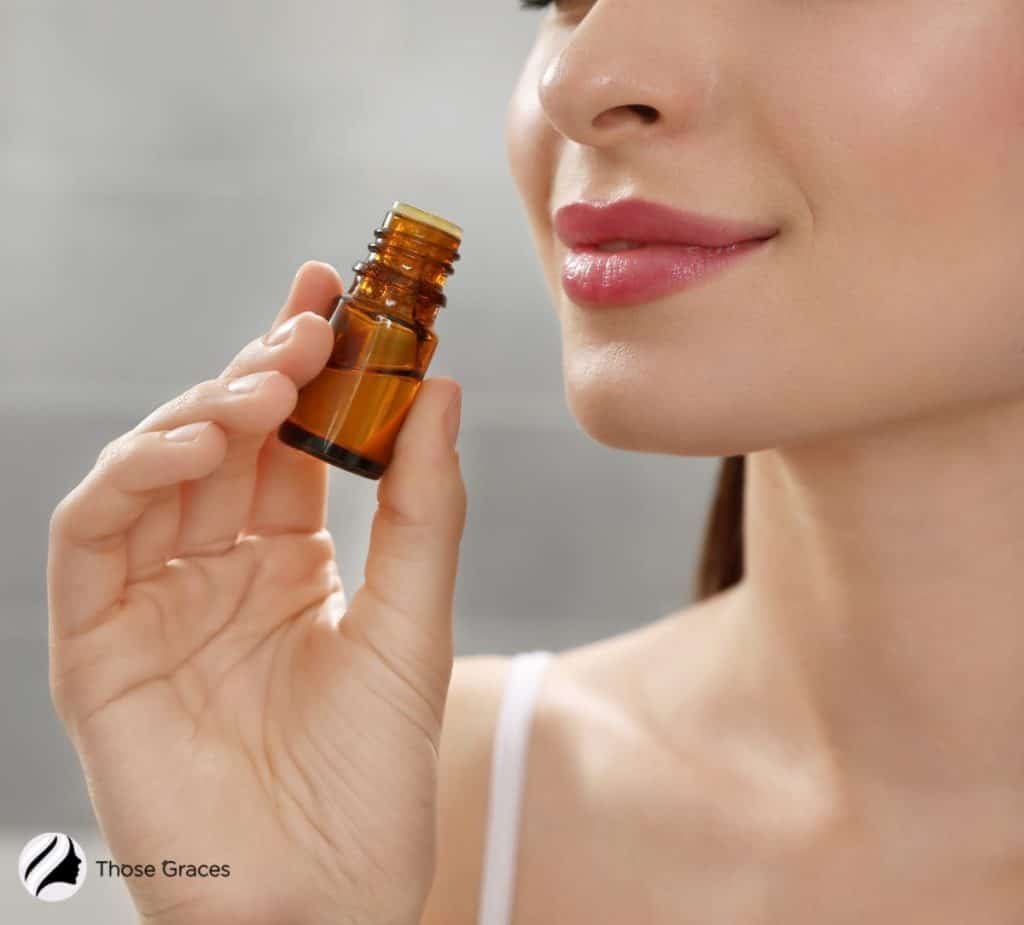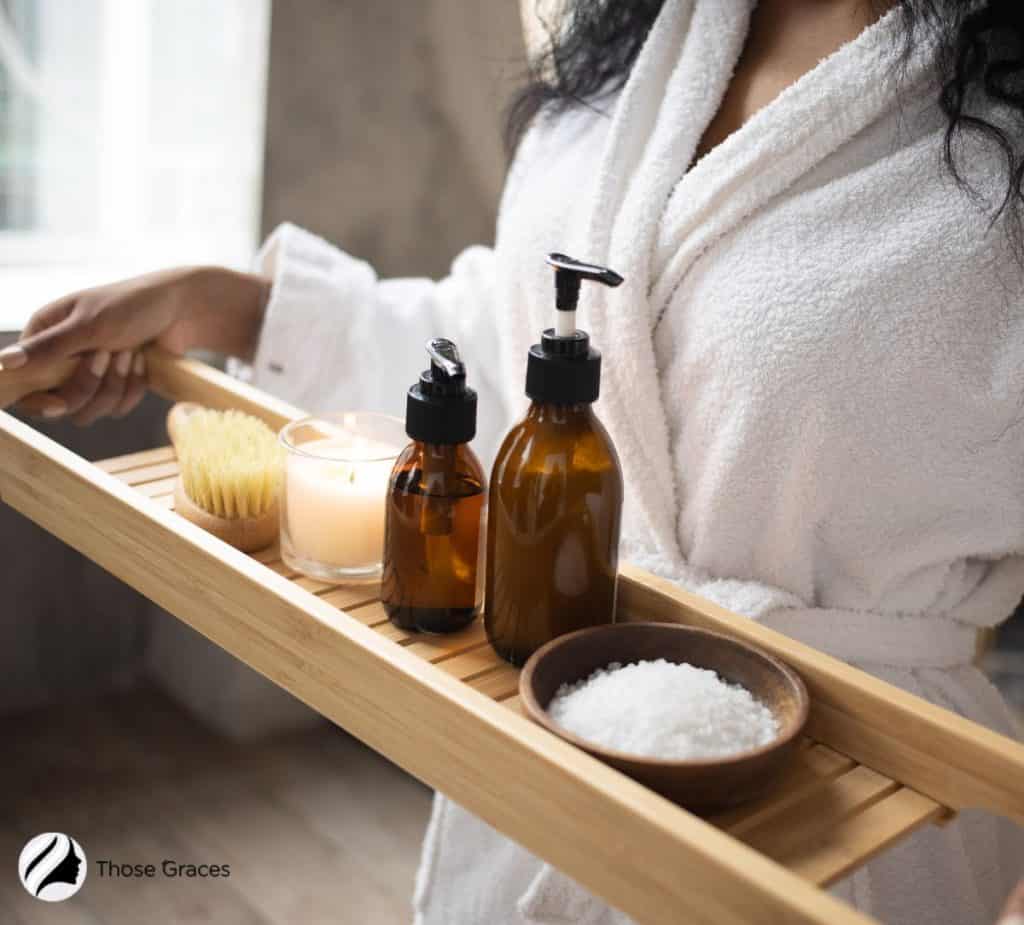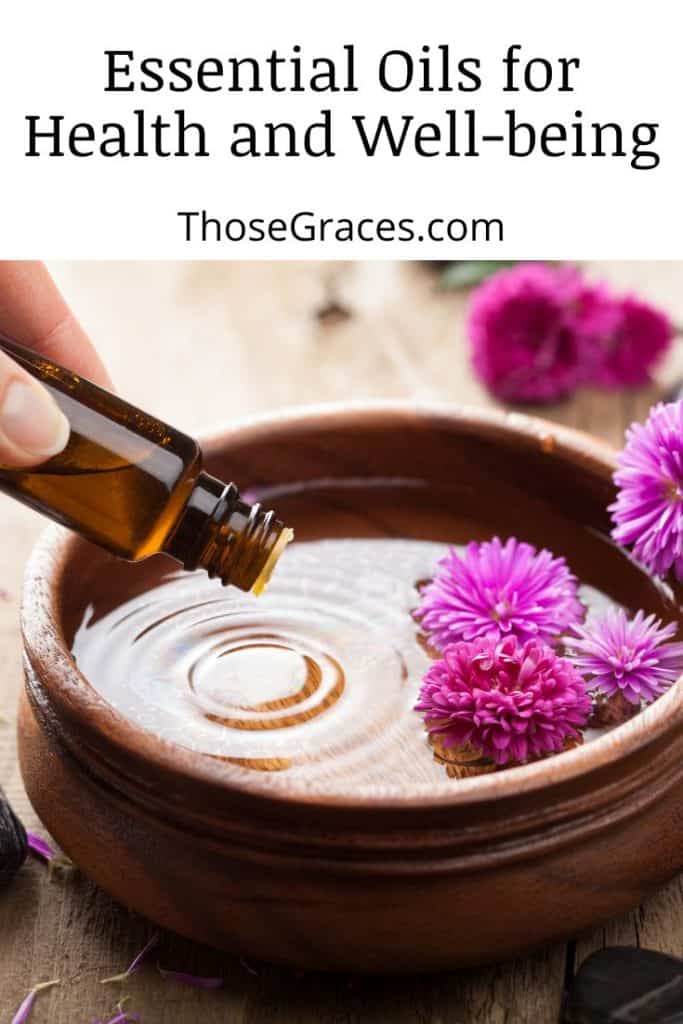Mulling over essential oils for health and well-being? I have your answers right here!
Australia is home to many of the top essential oils Australia, offering stellar therapeutic benefits along with improved health.
As an experienced aromatherapist, I’ve witnessed first-hand how choosing the right ones for your requirements and needs can be overwhelming – and that’s why I’ll reveal 9 essential oils and their vast health benefits today.
So don’t wait – dive in to discover the insider secrets of essential oils and become a health superstar!
Table of Contents
Key Takeaways
- This guide introduces the top 10 essential oils found in Australia, detailing their unique benefits, from boosting mood to promoting restful sleep.
- Each oil section provides insights into the best ways to use these amazing oils safely and effectively, from diffusion to topical application.
- The guide emphasizes the safe usage of essential oils, underscoring the importance of proper dilution and consultation with healthcare professionals.
Essential Oils for Health & Well-being: Top 10 in Australia
Here are my favorites – the top 10 essential oils – you’re itching to know about!

#1 Lavender Oil
Ever heard of the magic of lavender oil?
Lavender oil is a versatile treasure. It’s well-known for its calming and soothing effects. It promotes relaxation and sleep aids and helps reduce anxiety and stress.
Experts in the field of aromatherapy explain how the limbic system, which is related to mood, memory, and sexual activity, “plays a significant role in our reactions to different odours”, including lavender oil [2].
This system is closely associated with the olfactory system.
It can influence our mood and physiological responses depending on various internal and external conditions while inhaling fragrant ingredients like lavender oil.
Another remarkable benefit of lavender oil is its ability to alleviate headaches and mild irritations. Isn’t that incredible?
In fact, as someone with headaches and severe itchiness, I’m impressed with this oil’s magic – it’s simply amazing!
To enjoy the therapeutic benefits of lavender oil, add a few drops to your diffuser, blend it with carrier oils for a soothing massage, or apply it topically.
The result? Pure bliss!
Check out this video to learn more:
#2 Peppermint Oil
Hippocrates, father of Western medicine, said, “The way to health is an aromatic bath and scented massage every day. [3]”
And this one is pure bliss: it is invigorating and has a cooling effect.
Generally speaking, peppermint oil can provide relief from headaches, muscle aches, and digestive issues.
If you’re the creative type, you can inhale it.
To elaborate, inhaling this oil can help improve focus and concentration.
Speaking from personal experience, I often take my tea with some peppermint drops. The result? A tastier, refreshing cup of tranquility.
If not for tea, you could use it on your person. Diffuse it, apply its diluted form to the neck and temples, or add it to a warm bath for a refreshing experience.
Check out this video for a deeper discussion:
#3 Eucalyptus Oil
Renowned for its respiratory benefits, this oil is pure genius.
Not only does it help clear congestion, but it relieves sinus issues and supports respiratory health.
Its antimicrobial properties make it a fantastic choice during cold and flu season.
But how do I use this oil?
If you experience constant respiratory relief – as I do – diffuse it, add a few drops to hot water, and inhale that aromatic steam.
Discover the incredible advantages of eucalyptus in this informative video:
#4 Tea Tree Essential Oil
It is well-known for its antiseptic and antibacterial properties.
On top of smiting those nasty bacteria, this oil can help treat minor cuts, wounds, and skin infections (and is incredibly effective against acne due to its purifying qualities. )
If you want the best result, dilute the oil and apply it topically, or add it to homemade cleaning products for its disinfecting abilities.
In this concise one-minute video, Dr. Berg explains the numerous benefits of tea tree oil.
#5 Lemon Oil
If I had a lemon farm, I wouldn’t – as conventional wisdom has it – make lemonade. No, I would make an oil out of it…
Thankfully, lemon oil is here – and with a refreshing and uplifting citrus cent, it’s a healthy addition to your life.
Not only is this oil a powerful cleanser, but it is also known to promote a positive mood and boost your mental clarity.
For optimal use, enhance your environment by adding a few drops to a diffuser or utilizing it as a natural cleaner for your household.
Uncover the top benefits and versatile uses of lemon essential oil in this enlightening video:
#6 Frankincense Oil
Unlike Frankenstein, the terrible monster from legend, this oil has a rich, woody aroma and is often used for its grounding and calming effects.
Furthermore, it can reduce anxiety and promote relaxation.
It is also beneficial for skincare, as it supports skin health and decreases the appearance of blemishes.
For best results, and to give you my household secret, incorporate this oil into your massages (it does wonders for your skin!)…
Join Dr. Josh Axe as he delves into the uses and incredible benefits of frankincense in this captivating video.
#7 Chamomile Oil
Chamomile oil is deemed one of the “most ancient medicinal herbs known to mankind,” according to ancient tribes [1]. I can assure you its popularity stretches far…
Well-known for its calming and soothing properties, chamomile oil relaxes, promotes restful sleep, and alleviates anxiety and stress.
The joys of chamomile aren’t skin deep: It’s a great addition to any skincare routine, especially for sensitive or irritated skin.
For best results, diffuse it before bedtime or do what I do each night: add it to a warm bath for a tranquil, revitalizing experience.
#8 Rosemary Oil
“Give a lady a rose, and you’ll make her day,” said a sage. But what about rosemary oil?
Rest assured, I’ve used this oil for decades, and I’m stunned by its ambient, unique scent that lasts for days. The scent? Refreshing and herbaceous, one to make your home smell like heaven.
Are you a student? Then you have an oil that stimulates the mind, enhances focus, and improves memory.
This oil relieves muscle aches and promotes a healthy scalp and hair.
For best results, diffuse it for a stimulating massage or scalp treatment.
Make sure to also check out our exciting articles on “Benefits of Argan Oil for Hair” and “Benefits of Coconut Oil for Hair” to unlock the secrets of healthy and vibrant hair!
Discover the multitude of benefits offered by rosemary essential oil in this video:
#9 Ylang-Ylang Essential Oil
This elegant, sweet, floral fragrance promotes relaxation, uplifts the mood, and curbs stress, anxiety, and tension.
I appreciate this oil’s aphrodisiac properties that can enhance romantic experiences and create the most hypnotic environment imaginable [5].
Want to know how to use it? Diffuse it for a calming and sensual massage (tell me about it later!).
Explore the diverse range of benefits and uses of Ylang Ylang essential oil in this informative video:
#10 Bergamot Oil
Are you a massive fan of Earl Grey tea like I am? Have you ever wondered what that delicate fruit smell resembles – besides the perfect addition to an Australian 11 o’clock toast?
Well, it’s called Bergamot – and the oil itself is used everywhere -perfumes, shampoos (you name it)…
The scent? This oil is famously described as having a citrusy and uplifting aroma. But there’s more to it…
Besides, studies show how Bergamot oil can relieve anxiety and stress and promote a positive mood.
What about the skin?
Thankfully, it supports skin health and can reduce the appearance of blemishes and all those nasty ailments that make you look like a nightmare.
Want the best way to use this oil? Use it for a refreshing massage or in your favorite skincare routines.
Unlock over 15 effective uses of Bergamot essential oil for enhancing confidence, boosting worthiness, managing stress, and more in this comprehensive video:
For more insights on wellness, don’t miss our articles on the “Secrets to Clear, Radiant Skin,” “Science-Backed Supplements That Every Woman Should Take,” and “How to Fight Common Skin Care Concerns.”
Check out this comparison table for a quick summary!
| Oil | Description |
| #1 Lavender Oil | Versatile oil is known for calming and soothing effects. Promotes relaxation, and reduces anxiety and stress. |
| #2 Peppermint Oil | Invigorating oil with a cooling effect. Relieves headaches, muscle aches, and digestive issues. |
| #3 Eucalyptus Oil | Renowned for respiratory benefits. Clears congestion, relieves sinus issues, and supports respiratory health. |
| #4 Tea Tree Essential Oil | Powerful antiseptic and antibacterial oil. Treats cuts wounds, and skin infections. |
| #5 Lemon Oil | A strong cleanser that promotes positive mood and mental clarity. |
| #6 Frankincense Oil | Grounding and calming oil. Reduces anxiety and promotes relaxation. Supports skin health and diminishes blemishes. |
| #7 Chamomile Oil | Calming and soothing oil. Promotes restful sleep and alleviates anxiety and stress. Great for sensitive or irritated skin. |
| #8 Rosemary Oil | Refreshing and herbaceous oil. Stimulates mind enhances focus, and improves memory. Relieves muscle aches and promotes healthy scalp and hair. |
| #9 Ylang-Ylang Essential Oil | Elegant and sweet floral fragrance. Promotes relaxation, uplifts mood, and curbs stress, anxiety, and tension. |
| #10 Bergamot Oil | Citrusy and uplifting aroma. It relieves anxiety and stress and promotes a positive mood. It supports skin health and reduces blemishes. |
Keen to know how to use these oils? Check out my next section…
How to Use Essential Oils for Health and Well-being (4 Clever Uses)
Knowing the correct way to use essential oils is essential to reap their therapeutic benefits fully. Here are some common methods:
1. Inhalation
One of the most popular methods is inhaling essential oils’ aroma. You can use a diffuser, which disperses the oil into the air or inhale directly from the bottle. Here’s how:

- Using a diffuser: Add 3-5 drops of your chosen essential oil to water and let it run for 30-60 minutes.
- Direct inhalation: Open the bottle and inhale deeply for a few seconds. Be careful not to let it get onto your skin or eyes.
2. Topical Application
To experience the joy of oils, you can apply these directly onto the skin, but they should always be diluted with a carrier oil like coconut or jojoba oil.
This method is beneficial for treating localized issues or for skincare. Follow these steps:
- Mix 1-2 drops of oil with a teaspoon of carrier oil.
- Apply the mixture to the affected area, or use it for a soothing massage.
3. Bath and Spa Use
For the ultimate therapeutic experience, add essential oils to your bath water (here’s how):

- Add 5-10 drops to your bath water and stir well before getting in.
- Soak in the bath for 15-30 minutes, inhaling the aroma.
4. Household Use
You can do more with essential oils (cleaning and freshening up your home!):
- Add 10-15 drops of lemon or tea tree essential oil to a water-filled spray bottle.
- Use this mixture to clean surfaces in your kitchen, bathroom, and other home areas.
Remember to consult with a healthcare professional or certified aromatherapist before starting any new treatment with essential oils, especially if you have underlying health conditions or are pregnant.
Want more clever tips? Delve into this video…
How To Use Essential Oils Safely: 4 Tips To Prevent Risk
To ensure you’re using your favorite oil safely, dive into these 4 tips ASAP!
1. Keep an Eye Out for Skin Reactions
Essential oils are powerful, concentrated extracts that sometimes don’t play well with our skin.
According to Dr. Josh Axe, a certified doctor of natural medicine, chiropractic, and clinical nutritionist,
“Essential oils are highly potent, and they can cause allergic reactions if used undiluted on the skin.”
It’s like trying to mix water with oil – sometimes, they don’t jive. Here are a couple of usual suspects:
- Irritation: Oils like cinnamon and lemongrass, beautiful as they are, can be quite the divas on your skin. The trick is to court them with a carrier oil before applying topically.
- Allergic reactions: Like bees to honey, certain essential oils can draw out allergic reactions in some folks, causing symptoms from rashes to hives or even shortness of breath.
If you’re planning a rendezvous with a new oil, conduct a little chemistry experiment first. Mix it with a carrier oil, apply a dab to your forearm, and give it 24 hours to react.
2. Beware of Using Medication
Here’s the catch – certain essential oils can cross swords with your medications or aggravate existing health conditions.
For example, the beautiful wintergreen oil has a compound twinning with aspirin and can heighten bleeding risks if you’re on blood thinners.
Always, and I mean always, chat with a healthcare professional before you add essential oils to your wellness dance.
3. Study any Potential Interactions
Some oils, like clary sage and rosemary, could potentially kickstart labor, so they’re a no-go during pregnancy.
Similarly, a few oils might prove too robust for the delicate skin of our young ones.
This is where thorough research and professional consultation become your best friends.
4. Swallow at Your Own Risk
Ingesting essential oils is a slippery slope, my friend. Some oils can wreak havoc if swallowed, even in tiny amounts.
It’s like inviting a bull. Best to keep essential oils high and out of reach of curious children and pets.
But remember, like any powerful tool, handle essential oils with knowledge and respect.
Once you’ve navigated these cautions and risks, you’re well on your way to safely integrating essential oils into your daily dance with wellness.
If you’re like me and you’re wondering about frequently asked questions, you’re in luck – dive into the next section!
FAQs
What are the top essential oils for health and well-being?
What are your insider tips for using essential oils?
Can essential oils replace traditional medicine?
Conclusion
Mulling over Essential Oils for Health and Well-being can be…frightening. But now you’re armed with the best of the best…and here’s the short of it:
Essential Oils in Australia offer a natural and versatile approach to promoting health and wellness.
Indeed, these Australian oils provide unique benefits, from lavender for relaxation to peppermint for headaches.
As a certified aromatherapist with years of experience, I strongly recommend using these essential oils to boost your health and well-being.
With this in mind, be responsible, follow proper dilution guidelines, and seek professional advice.
Remember, essential oils are complementary tools for health and wellness and should not replace any prescribed treatments or medications without the advice of a healthcare professional.

References
1. Gupta S. Chamomile: A herbal medicine of the past with a bright future (Review). Molecular Medicine Reports [Internet]. 2010;3. Available from: https://www.ncbi.nlm.nih.gov/pmc/articles/PMC2995283/
2. Fung TKH, Lau BWM, Ngai SPC, Tsang HWH. Therapeutic Effect and Mechanisms of Essential Oils in Mood Disorders: Interaction between the Nervous and Respiratory Systems. International Journal of Molecular Sciences [Internet]. 2021;22. Available from: https://www.ncbi.nlm.nih.gov/pmc/articles/PMC8125361/#B48-ijms-22-04844
3. Farrar AJ, Farrar FC. Clinical Aromatherapy. Nursing Clinics of North America [Internet]. 2020;55:489–504. Available from: https://www.sciencedirect.com/science/article/pii/S0029646520300475
4. Levy J. CHEAT SHEET: How to Use Essential Oils Safely [Internet]. Dr. Axe. 2018. Available from: https://draxe.com/essential-oils/essential-oil-safety/
5. Whelan C. Ylang Ylang Essential Oil Uses & Benefits [Internet]. Healthline. 2020. Available from: https://www.healthline.com/health/ylang-ylang/



